Medically Reviewed By | Johannah Gregg, DNP FNP-C
In our journey towards wellness, understanding and managing pain is essential. Whether acute pain from a recent sprain or a more chronic form of discomfort, many of us grapple with these experiences daily.
In an effort to support your wellness journey and offer practical advice, this article provides insightful at-home tips to manage pain effectively, with a focus on supportive measures and complementary strategies that aim to enhance your overall quality of life.
What Are Common Causes of Pain?
Pain, a complex and multifaceted experience, varies greatly from person to person. Acute pain, typically resulting from a specific injury or ailment, like a sports injury or poor posture, can be sharp and severe but is usually temporary.
Chronic pain, on the other hand, persists for weeks, months, or even years and may be linked to conditions such as low back pain, osteoarthritis, or muscle spasms. At the heart of our pain experience is our nervous system.
Pain signals are triggered in response to an injury or potential harm, alerting our brain via a network of nerve fibers. While this is a protective response, in chronic pain conditions, these signals continue even after the injury has healed, leading to persistent discomfort.
Why Shift Away From Pain Medication?
Common pain relievers, including over-the-counter analgesics like ibuprofen, acetaminophen, or prescription opioids, have been conventional go-to solutions for managing pain. Pain medicine often provides immediate relief, but it's important to consider its long-term effects.
Prolonged use of such medications can lead to numerous side effects. Opioids, while effective for severe pain, carry risks of addiction and tolerance, requiring higher doses for the same effect over time.
Over-the-counter drugs like NSAIDs (Non-Steroidal Anti-Inflammatory Drugs) can, in long-term use, lead to issues such as stomach ulcers, high blood pressure, and kidney or liver problems.
Moreover, the cost of chronic pain management using conventional medications can become burdensome. This, combined with the potential side effects, is leading many individuals to explore alternative, complementary methods of managing pain.
Embracing Alternative Home Remedies and Self-Care Measures
As we navigate the complexities of pain management, it's important to recognize the value of home remedies and self-care practices.
Let’s take a look at several strategies that can contribute significantly to managing pain effectively.
1. Harnessing the Power of Hot and Cold Therapy
Temperature therapy is a time-tested, non-invasive method for achieving short-term pain relief. Ice packs, cooling creams, and gels are fantastic tools for addressing acute pain, such as sports injuries or sprains. Cold therapy helps reduce swelling and numbs the area, thereby minimizing pain signals to the brain.
Heat therapy, on the other hand, is often beneficial for chronic pain conditions and joint or muscle stiffness. It works by increasing blood flow and relaxing muscles, easing discomfort and promoting healing. A warm bath or a heating pad can be useful tools for heat therapy.
Remember, the choice between hot and cold largely depends on the type of pain you're dealing with, and sometimes, alternating between the two can be beneficial.
2. Incorporating Wellness Routines
Prioritizing wellness routines is another essential strategy in pain management. Specifically, the role of muscle relaxation shouldn't be underestimated. Simple practices like taking a warm bath, gentle yoga or stretching, and mindful breathing can help relax tense muscles and reduce discomfort.
These routines promote physical well-being and can significantly impact your mental wellness, further supporting pain management.
3. Herbal Remedies
Certain herbs are believed to interact with receptors in our bodies, potentially easing discomfort. Examples include turmeric, known for its soothing properties, and mint, which is beloved for its cooling effects.
However, always consult a healthcare professional before starting any new supplement regimen.
4. Prioritizing Quality Sleep
Sleep is a restorative process integral to our health. It bolsters the immune system, aids in muscle repair, and lowers stress levels. Chronic pain can often disrupt sleep, creating a vicious cycle where poor sleep can exacerbate pain. Therefore, ensuring you get enough quality sleep is a key element of effective pain management.
Creating a conducive sleep environment, maintaining consistent sleep schedules, and adopting sleep hygiene practices can significantly enhance sleep quality and contribute to managing pain better.
5. The Incrediwear Sleeve
At Incrediwear, we understand the diverse needs of individuals managing discomfort. Our innovative sleeves are embedded with semiconductor technology to support healthy blood flow, aiding muscle relaxation and maintaining your body's natural healing processes.
Our range of sleeves, from elbow sleeves to knee sleeves to body sleeves, is made with a blend of specialized materials, harnessing your body heat to support circulation. This encourages the flow of oxygen and nutrients to the affected area, helping support the muscles, soothe discomfort, and maintain a healthy recovery.
Whether you're an athlete seeking quicker recovery after intense workouts or someone managing discomfort, our sleeves can help enhance your self-care regimen and contribute to your overall quality of life, providing an added layer to your holistic discomfort-management approach.
Complementary Approaches to Pain Management
Effectively managing pain often requires a personalized, multi-pronged approach. Beyond home remedies and self-care practices, several complementary approaches can prove beneficial.
Here are some of the complementary approaches:
- Acupuncture: This ancient practice stimulates specific body points to promote healing and alleviate pain. Clinical trials suggest its benefits for conditions like low back pain, osteoarthritis, and fibromyalgia.
- Physical Therapy: Physical therapy Aims to improve mobility and functionality through tailored exercise programs, helping patients manage various pain conditions effectively.
- Massage Therapy: Massage therapy can help reduce muscle tension, lower blood pressure, and enhance overall relaxation, thereby mitigating pain.
- Biofeedback and Electrical Nerve Stimulation: Biofeedback is meant to aid in controlling the body's pain response, while electrical nerve stimulation uses mild electric currents to interrupt pain signals before reaching the brain.
Remember, each of these therapies can be an invaluable tool in your pain management strategy, especially when guided by healthcare professionals who can tailor treatment options to your specific health conditions and injuries.
Creating a Comprehensive At-home Pain Management Plan With Incrediwear
Stepping into your personal journey toward pain management, remember that this isn't a sprint but a marathon. Your plan will be as unique as you, deserving of thoughtful consideration and nurturing.
Discovering effective self-care rituals and including supportive measures like our Incrediwear Sleeves can help support your body's natural capabilities by maintaining healthy blood flow and aiding muscle relaxation.
Your wellness isn't just a target but an active journey. Trust in the power of exploration and education, and know you are not alone on this path. Every step you take towards better management of discomfort is a stride towards enriching your quality of life.
Sources:
3 surprising risks of poor posture | Harvard Health
Ice Packs vs. Warm Compresses For Pain | Johns Hopkins Medicine
Turmeric Benefits | Johns Hopkins Medicine
The effects of peppermint on exercise performance | PMC
Read more
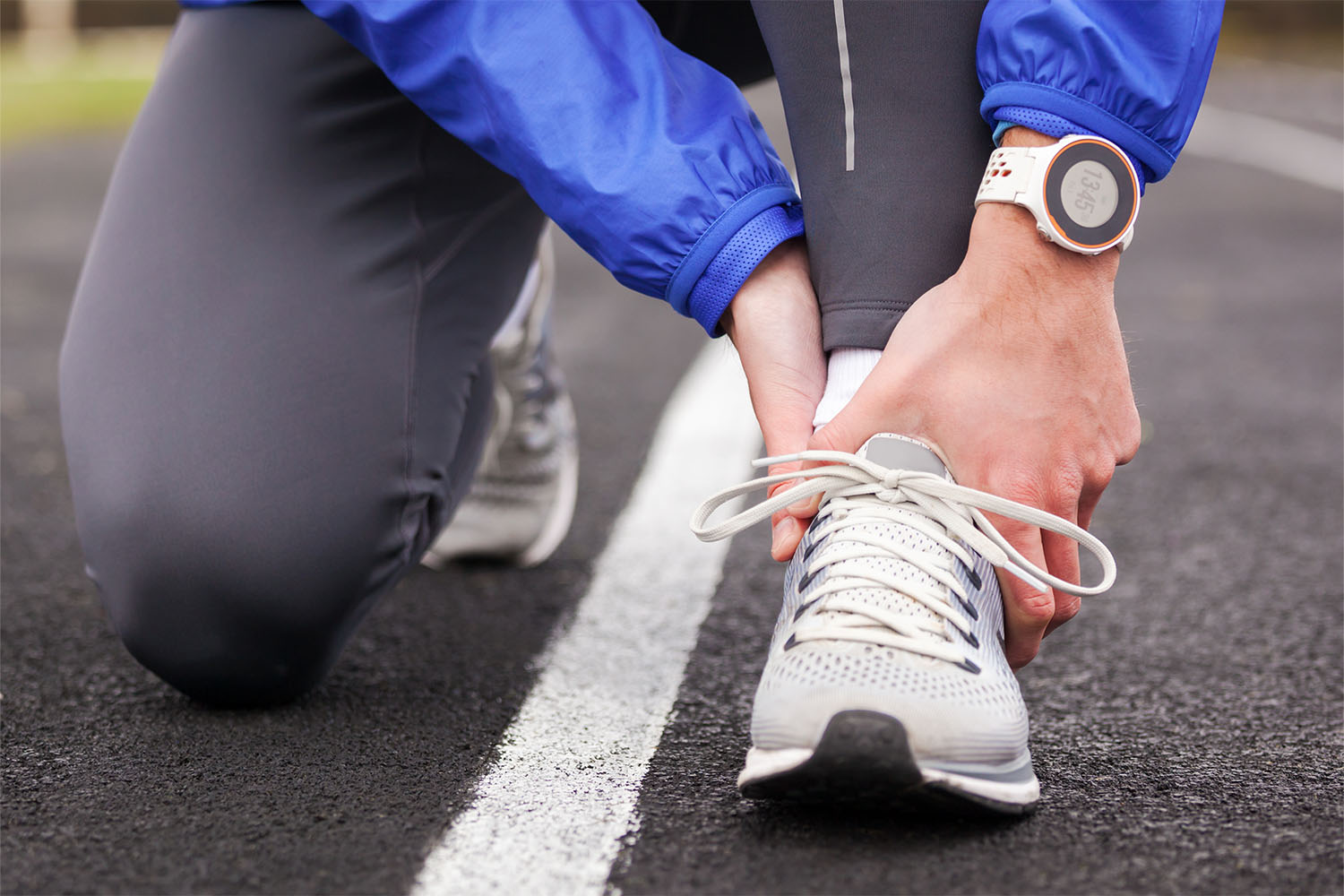
Medically Reviewed By | Johannah Gregg, DNP FNP-C Misdiagnosing an injury is usually the number one way to make the injury worse. Because your ankles are part of your body’s foundation and contribu...
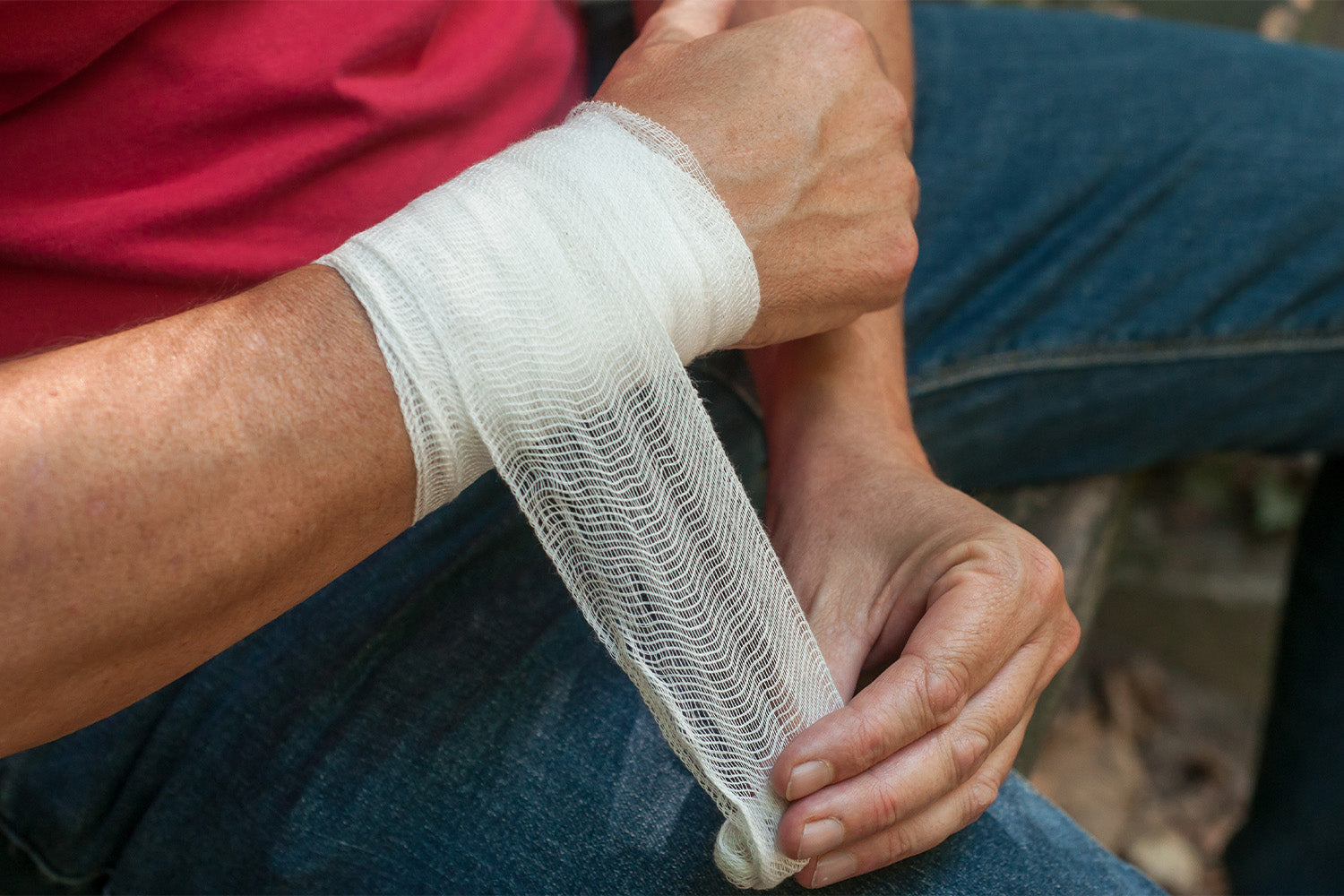
Medically Reviewed By | Johannah Gregg, DNP FNP-C Many different types of athletes are at a higher risk for wrist problems, whether it be an acute injury or a more chronic condition. Tennis players...

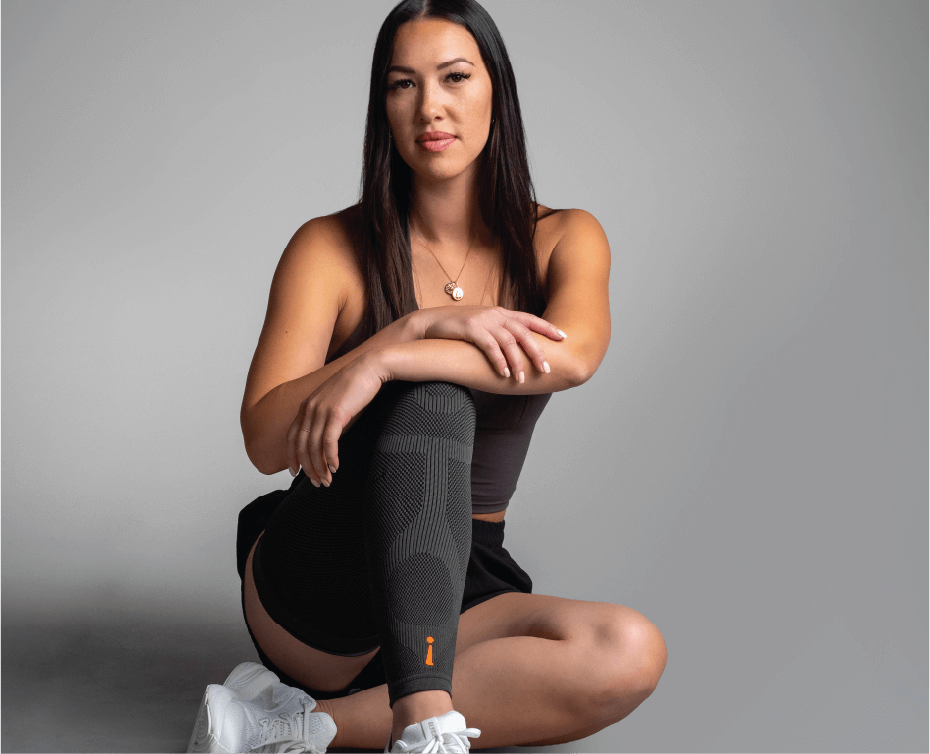


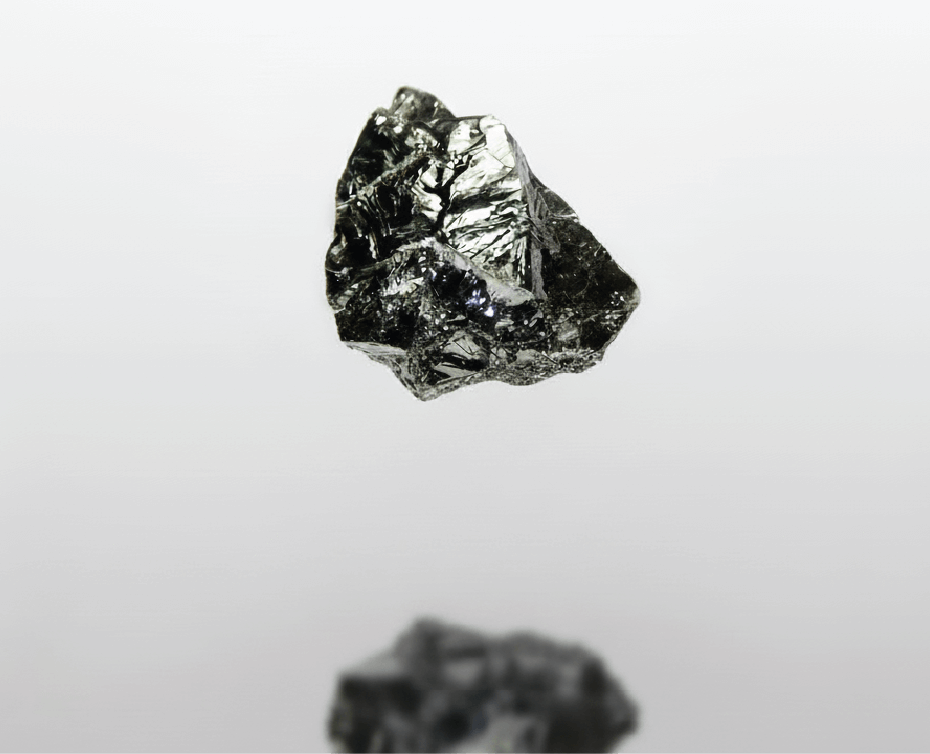
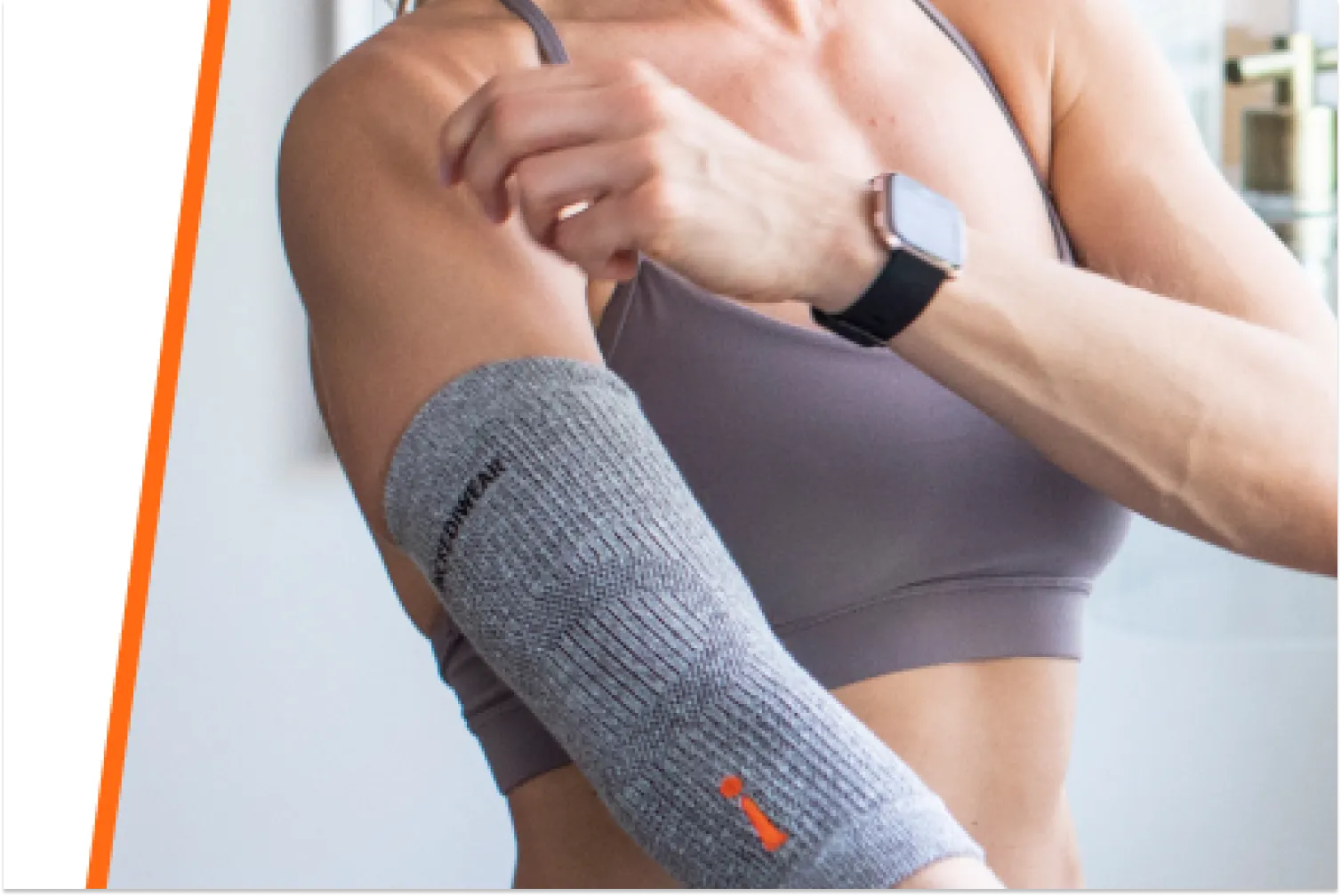
Leave a comment
All comments are moderated before being published.
This site is protected by hCaptcha and the hCaptcha Privacy Policy and Terms of Service apply.